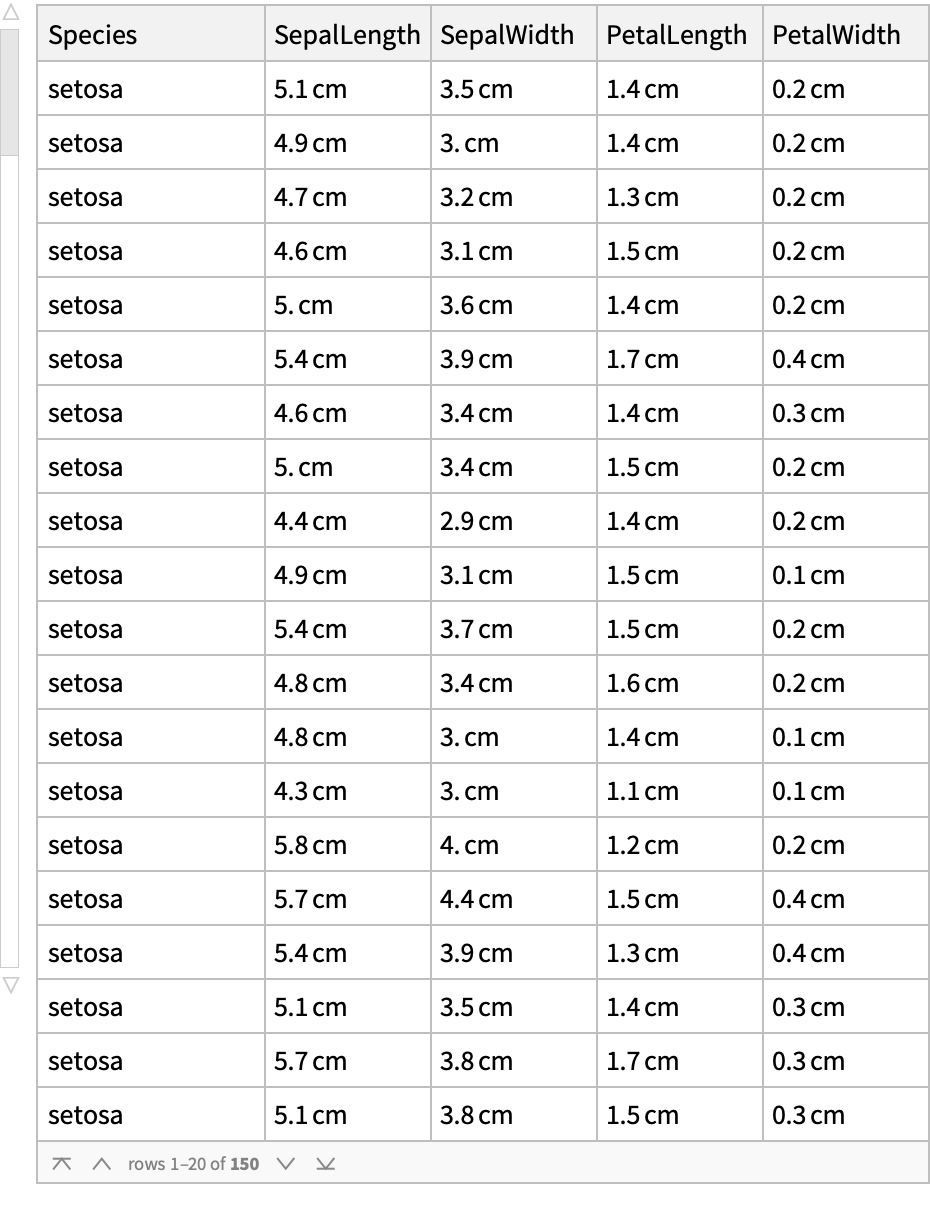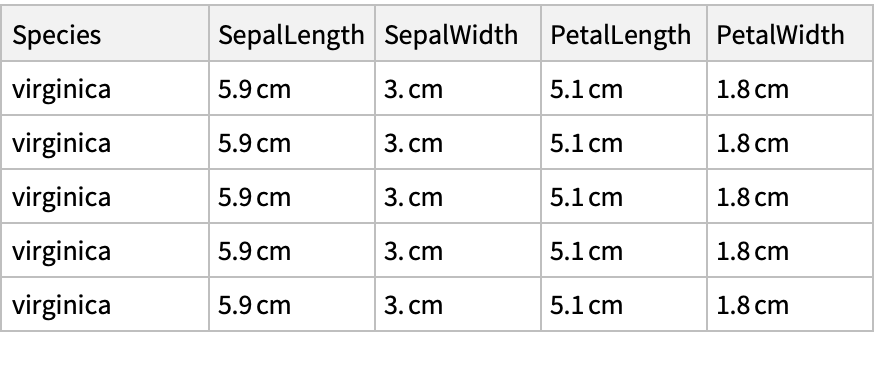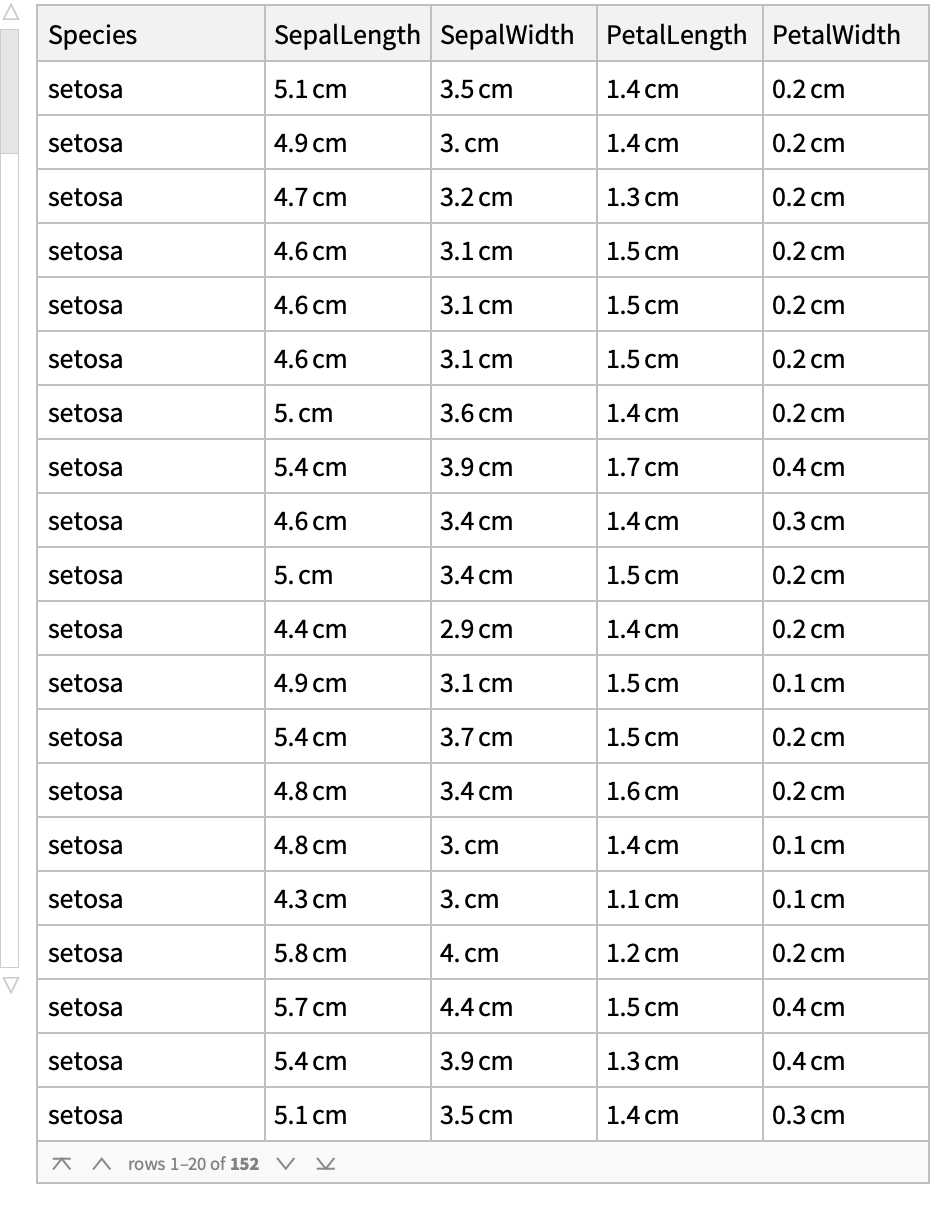Wolfram Function Repository
Instant-use add-on functions for the Wolfram Language
Function Repository Resource:
Create an operator for copying expressions
ResourceFunction["CopyMachine"][n][expr] creates a list of n copies of expr. | |
ResourceFunction["CopyMachine"][n,h][expr] wraps n copies of expr in h. | |
ResourceFunction["CopyMachine"][{n1,n2,…},…][expr] creates an n1⨯n2⨯… array. | |
ResourceFunction["CopyMachine"][…] represents a copy machine. |
Create an operator for making ten copies:
| In[1]:= |
| Out[1]= |
Make ten copies:
| In[2]:= |
| Out[2]= |
Create an operator that creates copies within a string:
| In[3]:= |
| Out[3]= |
| In[4]:= |
| Out[4]= |
Create a 3×2 array using an operator:
| In[5]:= |
| Out[5]= |
| In[6]:= |
| Out[6]= |
Import a dataset:
| In[7]:= |
| Out[7]= |  |
Create a dataset that only contains five copies of the last row:
| In[8]:= |
| Out[8]= |  |
Copy the fourth row three times:
| In[9]:= |
| Out[9]= |  |
Create random data in a list:
| In[10]:= |
| Out[10]= |
Splice five copies of the second element into the data:
| In[11]:= |
| Out[11]= |
Give Honest Abe a vocal quirk:
| In[12]:= | ![StringRiffle[
With[{n = Interpreter["SemanticInteger"][#]}, If[IntegerQ[n], ResourceFunction["CopyMachine"][n, Sequence], Identity]][#] & /@ TextWords@First@TextSentences@ResourceData["Gettysburg Address"]]](https://www.wolframcloud.com/obj/resourcesystem/images/b88/b88484ef-e7e8-47b8-af3f-37e3996647fd/4ddbe8853d3f7611.png) |
| Out[12]= |
For arrays, the head h is used at all levels:
| In[13]:= |
| Out[13]= |
Using zero gives an empty result:
| In[14]:= |
| Out[14]= |
Negative repetitions are not supported:
| In[15]:= |
| Out[15]= |
This work is licensed under a Creative Commons Attribution 4.0 International License